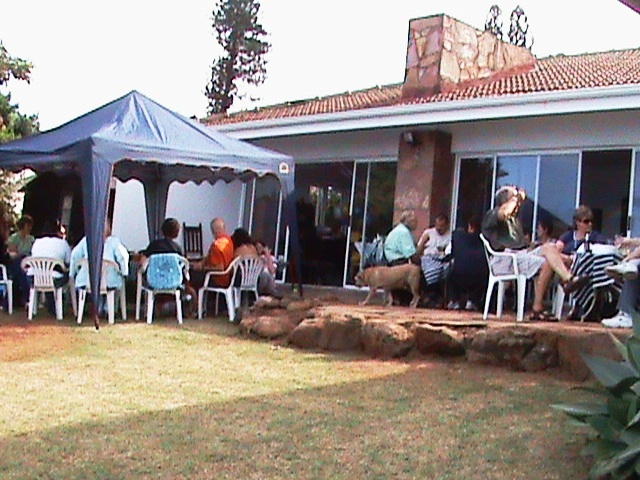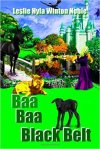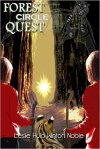 Just for starters, a Wordless Wednesday portrait of half of the front bit of the Colonialist Mansion, by special request:
Just for starters, a Wordless Wednesday portrait of half of the front bit of the Colonialist Mansion, by special request:
Advice to authors and editors:
You are a writer. You have produced your masterpiece. Now your publisher or someone else suggests it needs to be professionally edited.
Immediately, your hackles rise. You don’t need editing. You have gone over the manuscript yourself, numerous times, and it is perfect.
Finally, kicking and screaming, you submit. The first results return and you find that you have missed any number of spellchecker-proof errors of the ‘to/too’ variety as well as many wonky punctuation points. Are you grateful? Not exactly. ‘I would have picked all of those up on one more read,’ you grumble.
Then you see a comma inserted somewhere and you don’t like it. The editor points out that without it the sentence has a different meaning. You don’t see it that way. One of you capitulates, but only after many mutterings.
Now comes the ultimate insult – it is suggested that a sentence, paragraph, or passage be reworded. A total tantrum is immediately indicated. You suggest that the editor do some rather physically impossible things to him/herself, and you storm off to bed. The following day, you concede that there may be a point. A week later, you decide the rewrite is a great improvement.
Or, after reading your impassioned argument in defence, the editor comes back to you and says, ‘Oh, I see your point; much better to leave it as is.’ Replies like that do make one feel a lot better about the whole process, but there has still been a mutual rise in blood pressure.
Now we look at the editor. He/she/it starts off happily, jabbing away at correcting the obvious stuff, and enjoying the tale. Suddenly a screeching halt is reached. ‘What the blanketty-blank is meant here?’ comes the anguished cry. After some mental gymnastics, a revised wording is suggested. The writer replies acidly, pointing out that had you read a little further on you would have seen exactly why that wording was essential or, quoting sources, why it is correct. Now the (infallible, of course) editor is discomforted and not amused, instead of simply being glad that the point has been cleared up.
In another scenario, the editor is convinced that something is spoiling the story, but the writer refuses to budge and does not give any convincing argument for the refusal. Capitulate, or stick to guns? In these circumstances, the editor must persevere, and if overruled must make it clear that this is under protest.
I have been in the unique situation over the past few weeks of alternating between both of these roles. I am professionally editing two novels, and having my own latest one undergo the same process. In my ‘author’ role, I have had to learn to ignore my first reaction of, ‘How dare you criticise this?’ and take a deep breath followed by a long hard look. It was painful, for example, to delete a section of brilliant wordplay (well, I still think it was) when the editor pointed out that it breaks the action in the passage in question, but if one has to concede that’s actually what it did, then that’s what had to be done!
Then, in my editor role, I have to remember my own reactions to any crits, take another deep breath, and use lots of patience in getting the point/s across.
It is clear that the relationship between editor and writer has to be approached as a partnership, with the greatest sympathy and understanding on both sides. Subjectivity must be replaced with objectivity, and passion with reason.
Bottom line, at the end of the day, when all is said and done, and in the final analysis, an editor must be able to accept that even clichés can have their place – and the writer to acknowledge when they are overdone!


















Col, this is brilliant! Please could you repost it on the P’kaboo Blog? 🙂
LikeLike
🙂 Col this is brilliant. Please could you repost it on the actual P’kaboo Blog? It would interest authors, readers and everyone else, alike.
LikeLike
Interesting post.
Love your stoep, you don’t see anything like that here.
LikeLike
It has a rather damp spot at the far end, though!
LikeLiked by 1 person
LOL, that’s the first I heard of anyone referring to The Ocean as a “rather damp spot”.
LikeLike
As much as I’d love to improve my writing skills, I am far too insecure to have them scrutinized and even worse – criticized. Also, with my control freakish ways, it wouldn’t go done well with someone telling me that their way is better than mine.
Being an editor sounds a lot more fun than an author! Unless you have to edit a writer like me. In which case I’d pass on both accounts!
And I just LOVE your ending line … being a cliched cliché myself.
LikeLike
A good editor needs to adapt to the style and concept of the writer – what is ‘wrong’ from one viewpoint is not necessarily so from another. The good writer needs to accept that scrutiny and critisism are parts of the process needed to iron out inadvertent errors and show up possible weaknesses – of the kind which become invisible to all writers from being too close to them. A feeling of security should therefore be increased rather than undermined as a result.
It works extremely well if the writer is prepared to be open to suggestion, and the editor avoids any tendency towards being autocratic.
LikeLike
Very valid points.
I think the only way that would work with me is if the editor merely made all the changes but didn’t tell me what they were and deleted all evidence of a previous version of my writings. Hahahaha!
If ever I decided to publish – I would coming a-knocking at your door 🙂
LikeLike
I don’t know if my style would suit you, though – I normally highlight absolutely everything before changing it, and only alter the document after the writer’s approval.
Rationale? Take the simple closing of a quotation mark which has been left out. It is too easy to insert them at a point not intended by the writer. Or, with a simple comma, to change the meaning from what the writer wanted.
LikeLiked by 1 person
have not got the patience to even edit my own stuff… but useful advice if I could be bothered
LikeLike
It does take patience, indeed – but that is generally worth it. I have recently realised that too many of my own comments go out with blemishes which it is then too late for me to correct, and which I could have ironed out in seconds if I had bothered to give them one quick re-read.
LikeLike
A painful but necessary process, Col, which reminds me of Hamlet’s rationale to his mother: ‘I must be cruel to be kind.’ A very honest post but one to be expected from you.
LikeLike
A necessary rationale on many occasions. The writer (self included) always has to be prepared to learn, and to suffer some deflation of ego during the process. At the same time, situations arise where determined sticking to guns is warranted!
LikeLiked by 2 people
Well I doubt that this confrontation will arise in my line of work as I do not intend to publish ANYTHINK ever again! Unless I have the final say…
LikeLike
The writer should always have the final say. Here, a publisher – indie or mainstream – should be chosen who will defer to a reasonable desire to do so. One has to draw the line somewhere, of course. If the writer wants all obvious blemishes to remain, well …
LikeLiked by 1 person
Based on this post, I have decided that the role of editor and editee are not for me. Instead, I shall spend my afternoons enjoying garden parties at seaside estates.
LikeLike
Well, that can be done as well, in between-like!
LikeLike
I hate improvements especially when they come from others.
LikeLike
Infuriating, aren’t they?
LikeLike
You clearly have a lot of patience! And love the pic, it screams ‘perfect winter’s day in Africa’.
LikeLike
It helps to develop a good deal of it!
It was a good deal less perfect, today. My morning swim was distincly chilly. At least we weren’t wallowing in snow like the areas just inland from us!
LikeLike
I wouldn’t have the patience to deal with a relationship like that – more power to you!
LikeLike
Practice stands one in good stead!
LikeLike
It’s the easy way out, but I self-published my book on create space, a subsidiary of amazon. No one to tell me to move something, change something or rewrite something.
LikeLiked by 1 person
I have been that route, but discovered that it is far better, where possible, to have a professional overview. They had many flaws which I am able to pick up with no difficulty in another’s writing, but was blind to in my own.
LikeLiked by 2 people
Scary…
LikeLike
It can get very much so!
LikeLike
Looks like you’re having a party at the Colonialist mansion.
Editors are there to help. If you don’t want their advice, you could always just ignore it
LikeLiked by 1 person
A party it was – one of very many over the years!
Rather than ignore, it is always better to debate until the best solution is achieved.
LikeLiked by 1 person
Editors are there to help… a good editor is worth gold. Let’s put it this way: After much to-ing and fro-ing and hair going flying (I’m proud to be one of the authors who improved Col’s patience 😉 ), the way he put it to me is thus: If the editor stumbles over something that breaks the flow in his reading, a certain proportion of readers will, too. So it makes sense to take a closer look at each and every last edit; if one really doesn’t agree with the suggestion the editor makes, then one needs to come up with an alternative and chisel on it until it works for both.
On another note, you don’t want your book to be refused for professional reviews because of the literals. That’s another thing to consider before ignoring the editor.
LikeLike
Writin a buke is hard wurk!
Am I allowed to be envious of your back yard and window wall of the house? When is the next party?
LikeLike
Are you sure you have spelt ‘a’, ‘is’ and ‘hard’ correctly? It is – and then some even harder work starts!
If there is a next, it will be the last … *sob*
LikeLike
One of the drawbacks of blogging is that rarely are people willing to take you at your word and make helpful suggestions re typos etc. The ethos of blogging is not the same as the ethos of editing.
PS I love your house.
Love, ViV
LikeLike
I learnt rather soon in blogging that helpful suggestions are seldom received in the intended spirit! There are very few who are grateful for having typos etc pointed out. The rule I follow is, when in doubt DON’T! On the other hand, I am grateful to those who fix my typos in comments, or point them out in posts.
LikeLike
Am I really THAT tough to work with, Les? 🙂
LikeLiked by 1 person
You – and others of your ken – are an absolute pleasure compared to some I have had to edit, to whom reason is a foreign concept!
LikeLiked by 1 person
My relationship with my editor is she knows far better than me… her work is turning my words into a brilliantly reading book, well I think so… we have only clashed over one thing that seems to have no written rule anywhere in the universe… but with great interaction we have come to the conclusion both ways are right, so we have to choose one way, we are still not quite up to which to select… I want one way she the other…
LikeLike
In a situation like that, my ruling would be according to the rule that the writer rules!
LikeLike
Everything is a learning curve.
But I doubt I would take on the burden of editing someone else’s work. Well, not at this stage.
LikeLiked by 1 person
One of the sharpest of the curves, where one has to proceed with great caution, is learning to distinguish between ‘wrong’ and ‘different but admissible’.
LikeLiked by 1 person
I shall remember all this in the coming future… 😉
LikeLike
It will make the whole process a lot easier!
LikeLike
Looks like you were having a party, Col. There’s obviously more to writing a book, than just sitting down and pouring one’s thought and ideas onto paper. I so admire published authors. 🙂
LikeLike
We were, indeed! That would be a bit much by way of residents!
There certainly is that. One has to be dedicated – or nuts. I’m never sure which.
LikeLike
See spelling mistakes..because I am going to my bed
LikeLike
Good reason! ‘Night!
LikeLike
I feel highly honoured..thank you for showing me your house.
surely as a writer you are putting your own thoughts and feelings onto paper, so how can anyone have the right to tell you that it is wrong….spelling yes, cos I have read many a book with careless spelling so that is important, or when a sentence has been incorrectly typed. These I can understand. But I think it would driver my mad if someone reallt critised my work
LikeLiked by 1 person
‘Ask and ye shall receive.’ 🙂
It is part of the author burden. On a blog, or something like that, one simply lets it flow. For publication, though, one needs a professional opinion on what works and what doesn’t. Not only grammar, punctuation, etc, but what will satisfy readers. Also, one soon learns that the idea of ‘Physician, heal thyself” (aren’t I going all Biblical!) doesn’t work. An editor cannot do a proper final edit on his/her own work.
LikeLiked by 2 people
Did Willie Shakespeare have an editor
LikeLike
Only the compositors, at the time. Since, however, he has had any number of editors for each volume brought out. Ones like the Oxford, trying to restore to original (in all of several versions he wrote) end up rather a mish-mash.
LikeLiked by 1 person
Your last sentence is spot on – we just don’t see our own bad habits/typos/errors of judgment. But with an old editor’s hat on, I always used the proviso that “it is your story/book/poem and you must ignore my comments if they interfere with your concept of how it should be.”
LikeLiked by 1 person
There are, of course, limits. When one is editing for a publisher and the author gets pig-headed about something too obviously wrong, one has to be firm!
LikeLiked by 2 people
Can’t stop myself from commenting here. Yes, an author needs an editor. Two examples. The editor is your backup where facts are concerned – I once wrote a volcano onto an island on which this volcano was an impossibility. Example number two, in a story about two gypsy children looking for their family (not naming the book now), the author has her character Luka drag a violin through rain and rivers and all sorts of places, simply slung onto his back with some string, and it still sounds amazing when he plays. I believe she simply forgot the violin was there when she made them scramble through the mud like that. An oiled piece of cloth wrapped around the violin would have made all the difference. Regardless how much else I enjoyed that book, that part bothered me and told me she didn’t really do her research. You don’t want people to fall out of your story like that.
This is the reason you’d like an editor:
http://www.pbs.org/marktwain/learnmore/writings_fenimore.html
LikeLike
Aww nice doggie.
I won’t comment on the obvious re editing, merely to ask for tips on how to get interesting suggestions of what to do to oneself. All I get, is ‘that’s great’. Tell me what I’m missing please?p
And in a serious point,reading further on, is not always the solution. But hey, always the author’s call, say I. S/he who pays the piper …
LikeLike
I obviously need your authors – or your method for author-taming! Mine sometimes need whip and chair, plus an elephant gun as backup, and are experts at anatomical suggestions …
It can get awkward when the author is yelling loudly but is not the one paying the piper.
LikeLike